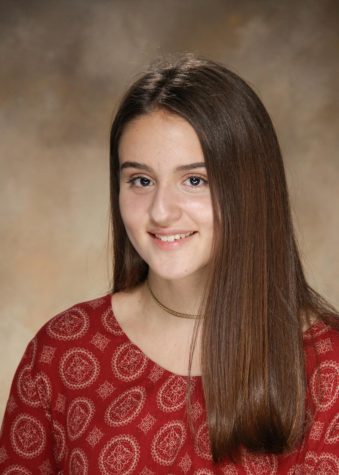Diverse faculty goes hand in hand with diverse curriculum
CESJDS accepts and assists faculty members from different countries
April 5, 2017
Diversity is not just a value of CESJDS, it is a way of life for the faculty. Throughout its existence, JDS has worked hard to bring in immigrant faculty and staff.
According to Director of Human Resources Lori Belke, JDS currently employs 13 faculty members who are permanent residents with a green card and five faculty members who work under other kinds of visas.
Visas are temporary permission to stay in the U.S. while green cards permit immigrants to become permanent residents who can live in the U.S. for as long as they want. The school has helped staff members renew their visas and apply for green cards.
Several staff members came to the school with a certain visa specific to their situation and then decided to stay as permanent residents. In these cases, the school must take on the responsibility of sponsoring their green card if the school chooses to continue employing the employee. Therefore, JDS pays fees that the application requires and sets the employee up with an attorney to assist with the process.
The school has had to pay expensive attorney’s fees in the past; however, immigration lawyer Michael Kabik, father of sixth-grader Hadas Kabik and alumnus Gefen Kabik (’14) offered to assist staff for free starting in 2004. Kabik initially got involved when former Head of School Jonathan Cannon asked for assistance on immigration issues at JDS.
Kabik’s role is to understand each case’s details, such as the worker’s background, the sponsor’s responsibilities and other legal requirements. Kabik represents JDS, but working with Belke, he advocates for the employee in question as well. As he analyzes this information, Kabik provides JDS with advice that will benefit the employee and the school.
“There are lots and lots of parents that contribute their time and energy in many significant ways but this is something that I am really well equipped to do,” Kabik said.
Hebrew teacher Yaffa Dagony and her husband received H-1B visas, which are permits for temporary work of a specialty occupation, in the 1990s. According to Dagony, the H-1B program requires that foreigners prove that they are more qualified than an applicant who is an American citizen.
Dagony kept this rule in mind when applying for a job at JDS. She believed she was more qualified than other applicants because she had more experience. Dagony is a language graduate, psychology graduate and fulfills linguistic requirements.
Head of School Mitchel Malkus agrees that teachers are selected based on qualification. Due to the Hebrew portion of the curriculum, there are visa holders who are more eligible than Americans for certain positions.
“We feel obligated to hire the best teacher and someone who can meet the requirements of the job, irrespective of who that is,” Malkus said.
Knowing that her H-1B visa would expire, Dagony applied for a green card three years after beginning to work at JDS. The JDS administration told Dagony that they wanted her to continue working at the school, so they helped her get the green card by giving her legal assistance.
Dagony, who is now an American citizen, applied for her green card before the terrorist attacks on September 11, 2001, which prompted the government to tighten up visa laws. According to Belke, the process before the attacks was handled by the school and its attorney, allowing the employees’ experience to be “seamless.” As the years have gone by, Belke said, the process has become more challenging and expensive.
The government requires certain fees to be paid by the employee as well as the sponsor.
“Today’s setting is a bit of a shared cost but that’s just indicative of the way the process has changed dramatically,” Belke said.
As a current American citizen, Dagony does not take living here for granted. She is very appreciative of the school for helping her stay in America.
“[JDS] sees itself like a community that is supporting people that work here, it’s like [how a] family supports one another,” Dagony said.
Because of recent controversy over immigration laws in the U.S., Malkus said that the school ensures immigrant and foreign faculty’s comfort by treating them the same as they would any other staff member. According to Malkus, while the school does not take political standpoints, he personally believes that the school should embody Jewish values like opening its doors to immigrant and foreign faculty.
Kabik shares similar values to Malkus and believes that immigrants better this country. He is grateful to have the ability to impact so many people’s lives.
“Helping a company sponsor individuals for employment authorization or work visas so they can get the best talent has a very big effect on the school community,” Kabik said. “If I can help get one teacher a work visa for the school, that allows me to contribute in a very meaningful way.”







